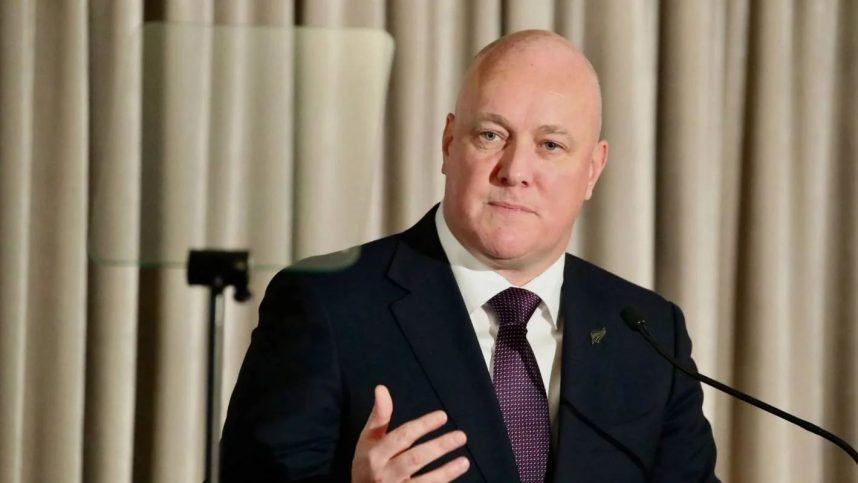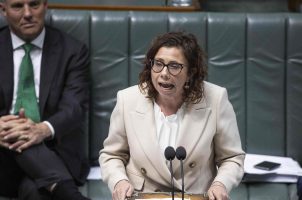New Zealand Explores Taxing Offshore Gaming Operators
Posted on: August 30, 2023, 08:10h.
Last updated on: September 1, 2023, 03:18h.
General elections are coming to New Zealand this October and will establish whether the Labour Party should continue controlling the government. However, if the National Party wins the majority, it envisions significant tax reforms, including a new tax on any gaming operator targeting the country.

The National Party believes its primary rival is responsible for economic mismanagement that has led to rampant inflation, huge increases in interest rates, and a shrinking economy.
To address these issues, the party proposes new taxes on foreign-owned real estate and removes current business tax breaks. According to the party’s projections, those changes could bring more than NZ$1.2 billion (US$716 million) to the economy.
The National Party would also aim to close an iGaming loophole. Currently, it’s not illegal for New Zealanders to use offshore sites. But these sites aren’t regulated and don’t pay any taxes to the country.
By taxing offshore gaming operators, New Zealand would bring in NZ$179 million (US$106 million), according to the National Party’s projects.
Government Officials Reject Figure
However, New Zealand Member of Parliament Kieran McAnulty, who belongs to the Labour Party, asserts that it has grossly miscalculated the money the regulated iGaming market could attract.
McAnulty, who also serves as the country’s Minister of Racing, puts the figure at about half the amount. He says the amount Kiwis spend gambling online through offshore platforms is around NZ$300 million (US$179.13 million).
The New Zealand Lottery Commission and Tab NZ are the only two regulated operators in the country. Should New Zealand regulate the iGaming space, current offshore operators would pay a goods and service tax of at least 15%. If McAnulty is correct, what the government could earn would be capped at about NZ$50 million (US$29.85 million).
Foreign Buyer Tax Proposed
The National Party, which currently holds a significant lead over the Labour Party in the political polls, believes the changes are necessary for the government to focus on the working man. It asserts that many people must work multiple jobs to compensate for rising inflation and high taxes.
It asserts that changing existing tax laws would give the average household more disposable income. The average is NZ$120,000 (US$71,652), and the reforms would provide up to NZ$500 (US$298.55) more per month for some households.
To make this happen, foreigners buying a home worth NZ$2 million (US$1.19 million) or more would have to pay a 15% “foreign buyer tax.” The National Party asserts this would result in NZ$740 million (US$441.85 million) in additional tax revenue annually.
The party would also eliminate the government’s tax break on commercial real estate depreciation. This could lead to another NZ$525 million (US$313.47 million) for the government.
Other tax reforms are included as well. If the National Party’s plan achieves its goal and it drums up enough voter support to take over, it plans to introduce the changes on July 1 next year.
Related News Articles
Italy’s Gambling Industry Facing New Taxes, Additional Changes
Australia’s Gambling Ads to Carry Safer Messages to Deter Spending
Online Gaming Operators in Ukraine to Pay More Taxes on Revenue
Most Popular
Las Vegas Overstated F1 Race’s Vegas Impact — Report
Mega Millions Reportedly Mulling Substantial Ticket Price Increase
NoMad Hotel to Check Out of Park MGM on Las Vegas Strip
Most Commented
-
End of the Line for Las Vegas Monorail
— April 5, 2024 — 90 Comments -
Mega Millions Reportedly Mulling Substantial Ticket Price Increase
— April 16, 2024 — 8 Comments -
Long Island Casino Opponents Love New York Licensing Delays
— March 27, 2024 — 5 Comments
















Last Comment ( 1 )
National need to provide working figures and assumptions for their claim to have credibility. The only way to stop overseas online gambling is to provide a better service in NZ. NZ TAb has a monopoly and is and is thus able to offer a far inferior service to punters. This is why money is placed off shore. Simple as that!